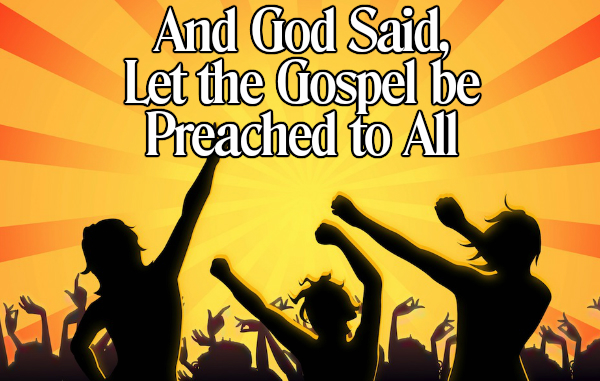
Now there were in the church at Antioch prophets and teachers, Barnabas, Simeon who was called Niger Lucius of Cyrene, Manaen a lifelong friend of Herod the tetrarch, and Saul. While they were worshiping the Lord and fasting, the Holy Spirit said, “Set apart for me Barnabas and Saul for the work to which I have called them.” Then after fasting and praying they laid their hands on them and sent them off.
Understanding And Applying the Text
This is a very short passage. At first glance, it may appear not to contain much. But as I studied it I found exciting good news. What has happened to this point in church history? First, the most important thing was Christ died for the redemption of our sins. But Christ bringing salvation to the world was useless unless there is some way for us to participate in it.
Second, the apostles received commandments to preach the gospel throughout the world. But they confined themselves to the borders of Judea. True Peter went to Cornelius. And there was some preaching by believers to Gentiles in Antioch. But the church may have understood these to be the exceptions, not the rule. They could have understood God hand-selected these. God had not appointed Peter or anyone specifically to go to the Gentiles. He now appoints Saul (Paul) and Barnabas to be apostles to the Gentiles.
This makes Gentiles equal with the Jews. God destroyed the barriers between Jew and Gentile. Both were recipients of the gospel.
The gospel was not brought to gentiles by chance. It was not presented as a rash act. It was presented by God’s wonderful counsel. The gospel was presented to gentiles by God’s express commandment. God made it clear all men were to know the gospel.
Luke tells us there were prophets and teachers in the Church at Antioch. There is some debate about what Luke intended to communicate. Was he saying these were two groups? Where there prophets who were not teachers? Were there teachers who were not prophets. Or was Luke using synonyms? My vote is these are not synonyms. Luke is saying some teachers were not prophets. But I would not state it dogmatically.
Included in this group were Barnabas and Paul. But there were others in this group of prophets and teachers. There was Simeon called Niger. Niger is Latin for black. He may have been from Africa. There was a man named Manaen. He was a close personal friend of Herod. They had been friends from childhood. This Herod is a reference to Herod Antipas. He governed Galilee from 4 B.C. to A.D. 39. He was the Herod who beheaded John the Baptist. The Gospels mention him several times.
The church was made up of all ranks of society. There were poor and wealthy. There were educated and uneducated. There were members of high society and lower class. The church is made up of a mix of society. We should not look for a church that looks like us. We should not look for a church that holds the same political views. We should not look for a church where they sing songs we like. We should not have black churches or white churches or Hispanic churches. Christ’s church contains people from all races, economic backgrounds, and social statuses. We are to cast aside the things that separate us.
While they were worshiping the Holy Spirit told them to set Barnabas and Saul apart. They were to go to the Gentiles. God had already called them to preach the gospel. Now God called them to preach to the Gentiles.
The Holy Spirit told the church to separate Paul and Barnabas. In other words, this was not a private calling. Paul and Barnabas were not the only ones to hear the call. The call was public and from God. It was not from the church. Paul points out in Galatians 1:1 his appointment did not come from the church. It did not come through the church. It can from God through Christ and the Father. And the Holy Spirit who spoke to the church.
After the church fasted and prayed the church sent Saul and Barnabas away to preach to the Gentiles. What were they praying for or about? They were not praying to petition God. They were not praying to determine God’s direction. God had already given that. Their prayer was to align their hearts, minds, and will with God.
Our prayers should be the same. We do not pray to change God’s mind. We pray to align ourselves with God’s will. We do not pray to align God with our will.
But what is so exciting about this passage? What is exciting is God insured you and I were able to hear the Gospel. Without God sending Saul and Barnabas we may never have heard the good news. Praise God! He brought us the good news. Praise God He brought salvation to us.
Leave a Reply